
MESSAGE HEARD MEDIA HUB
Undiscovered - The Right To Die?
Undiscovered - The Right To Die?
Dying with dignity or playing god? Despite drawing a broad coalition of support on religious, medical and moral grounds, the question of legalising assisted dying in the UK remains unanswered. In this episode of Undiscovered, we meet people immersed in both sides of the debate - as well as someone for whom it is not a political concern, but a personal and immediate consideration.
Dying with dignity or playing god? Despite drawing a broad coalition of support on religious, medical and moral grounds, the question of legalising assisted dying in the UK remains unanswered. In this episode of Undiscovered, we meet people immersed in both sides of the debate - as well as someone for whom it is not a political concern, but a personal and immediate consideration.
This episode focuses on the specific debate around assisted dying. In a key distinction made by many campaigners, assisted dying applies to terminally ill people only, unlike the broader eligibility sought out for euthanasia or assisted suicide.
For those who support assisted dying, such as Barbara Coombs Lees, who helped legalise the practice in the US, and Ellie Ball, a campaigns officer at Dignity in Dying UK, this differentiation emphasises the empathy and compassion in helping someone already at the end of their lives, to end it without suffering.
However, those on the other side of the debate think the reframing of the issue is obscuring the mortal moral? reality of the act. In this episode, we hear from Phil Friend, from Not Dead Yet UK, who highlights what he believes are the risks for more vulnerable groups, such as the disabled community, who stand to be victimised by these laws.
For Patrick Wymer, the language used is less important. Since he was diagnosed with terminal bowel cancer in 2017, he’s thought deeply about the possibility of seeking an assisted death. He offers us perhaps the most balanced, human insight into what remains a deeply complicated debate.
Listen now to hear all sides of the story.
Undiscovered - The Art of The Heist
Undiscovered - The Art of The Heist
Across Europe, incredibly valuable pieces of Chinese art are disappearing from museums and personal collections alike. In our investigations into who is behind these Hollywood style heists - we explore a shadowy picture of government interests, criminal repatriation, and opportunistic hustlers.
Cat burglars, priceless jewels, elaborate heists. Thanks in a large part to Hollywood, art crime has a glamorous, even benign, reputation. But the reality is, it can actually have deep, dark links to other forms of organised crime. Noah Charney, Art Historian and author, referenced Isis, who looted and sold valuable antiquities to fund their terrorist activities, as an example.
This week's episode of Undiscovered asks: can such shadowy motives be tied to a spate of heists targeting Chinese art? Or, is there another explanation hiding in plain sight?
Starting in 2010, the robberies have targeted high-end collections across Europe ranging from the Swedish Royal Residency to The Fitzwilliam Museum in Cambridge. In each case, Chinese art was specifically targeted, even when other valuable pieces were nearby. Even stranger, much of the stolen art has been tied specifically to Beijing’s Old Summer Palace which was looted in 1860 by British and French troops.
In China, the events of 1860 have become a national scar. It’s one of the key events, along with other attempts by powers to colonise and plunder their land, that makes up what they call the ‘Century of Humiliation’ (1840-1849). The Old Summer Palace, which has been preserved in it’s ransacked state, remains a public and potent symbol of both past indignity but also the immense progress made since Second World War.
“Two robbers breaking into a museum, devastating, looting and burning, leaving laughing hand-in-hand with their bags full of treasures; one of the robbers is called France and the other Britain.”
Victor Hugo, On the looting of the Old Summer Palace
In contrast to that time, China now wields awesome financial and geopolitical power - it’s is home to more billionaires than any other country. This has had an impact on the rising interest in repatriating Chinese art by purchasing it from foreign collections. In this episode, we hear how people like Liu Yang of the Yuanmingyuan Institute ("Yuanmingyuan" is the Chinese name of the Old Summer Palace) are trying to return these pieces to China legitimately; unpick the economic, cultural and ideological factors which muddy the water around these heists as well as and how they interplay with a larger debate around repatriation.
Undiscovered - What Happened At Unit 731?
Undiscovered - What Happened At Unit 731?
At Unit 731, one of the largest covered up atrocities of World War 2, the Japanese army conducted human experiments using both chemical and germ weapons on living prisoners. We grapple with what actually happened and how it still affects Japan - and the world - today.
At Unit 731, one of the largest covered up atrocities of World War 2, the Japanese army conducted human experiments using both chemical and germ weapons on living prisoners.
However, unlike the Nazis, there were no repercussions for those responsible.
In today’s episode of Undiscovered, we grapple with what actually happened and how it still affects Japan - and the world - today.
Japan’s invasion of the Chinese province of Manchuria is somewhat of a forgotten theatre of the Second World War, in part because the conflict began in 1931 - eight years before Germany invaded Poland.
Records show experimentation began at a site in Ping Fan, near Harbin, in the mid-1930s. The program, which operated under the pseudonym Epidemic Prevention and Water Purification Department, performed experiments on male and female prisoners - most of whom were Chinese or Korean.
In this week's episode, we spoke to two men, Professor Takao Matsumura and Professor Yuki Tanaka, who have spent their careers researching and publishing about Japanese war crimes. In conversation, both detailed the resistance their research about Unit 731 faced and how the crimes are still not widely taught in Japan today.
We explore all these factors, and the stories behind the research into them, in today’s podcast - listen now.
Find out more:
The documentary we reference in the podcast, Unit 731 - Did the Emperor Know, can be viewed at the BFI archives.
A documentary on Unit 731 currently available on Amazon Prime.
And if you want to know more about the Asia-Pacific war more generally - the fastidious Dan Carlin has a 4.5 hour podcast for you.
Undiscovered - Satanic Panic 2.0
Undiscovered - Satanic Panic 2.0
Much like any other belief set, acts of both unspeakable evil and charitable good have been performed under the banner of Satanism.
In today’s episode of Undiscovered we explore both sides to this story.
Much like any other belief set, acts of both unspeakable evil and charitable good have been performed under the banner of Satanism.
In today’s episode of Undiscovered, we explore both sides of this story.
We’ll look more closely at two vastly different world-views: the perspective of those who have suffered abuse at the hands of Satanists and those who believe the rituals and iconography of Satanism can be re-appropriated to build a positive and welcoming community.
In the UK, there is currently no explicit law against Satanic Ritual Abuse (SRA). Victims of SRA and their allies, like Vicky Ash and Wilfred Wong, who we spoke to in this week’s episode, are campaigning to change this. They argue there should be a specific focus on the satanic dimension of the abuse, and punishments that recognise that the name in which these crimes are perpetrated is important as the effects are uniquely traumatising.
There is also a conspiratorial dimension behind their activism. As they fight so hard to have their experiences recognised - our interviewees reported that it feels as if there is a powerful force, a secret group of society's elites, stopping them from getting the justice they deserve.
This idea of secret cabals is in direct contrast to an open, and even performative, brand of Satanists like Zeke Apollyon - High Cardinal of the recently rebranded Global Order of Satan. In the second half of the show, Zeke lays out their philosophy which challenges many negative associations with the occult - whilst leaning into its visual, verbal and ritual motifs.
Tune in to the episode to find out more about these competing, but by no means mutually exclusive, understandings of Satanism.
Undiscovered - The Lion, The Bear and The War Zone
Undiscovered - The Lion, The Bear and The War Zone
This week on Undiscovered, we hear the story of a bear, Lula, and a lion, Simba, who were abandoned in Mosul Zoo during the chaos of Isis occupation and the battle for liberation.
If you feared for your life, would you stop to consider the lives of animals?
In the chaos and destruction of war, the impact of human conflict on animals is easily overlooked. Fortunately, there are people like Dr Amir Khalil who have made it their lives work to rescue forgotten animals from conflict zones.
This week on Undiscovered, we hear the story of a bear, Lula, and a lion, Simba, who were abandoned in Mosul Zoo during the chaos of Isis occupation and the battle for liberation.
You can listen to the entire story now.
Dr Khalil works for charity the international charity, Four Paws, who fight cruelty to animals worldwide. They have saved animals from war zones all over the world including Bosnia, Egypt, Zimbabwe, India, Gaza and Libya. According to The New Yorker, each mission costs tens of thousands of dollars.
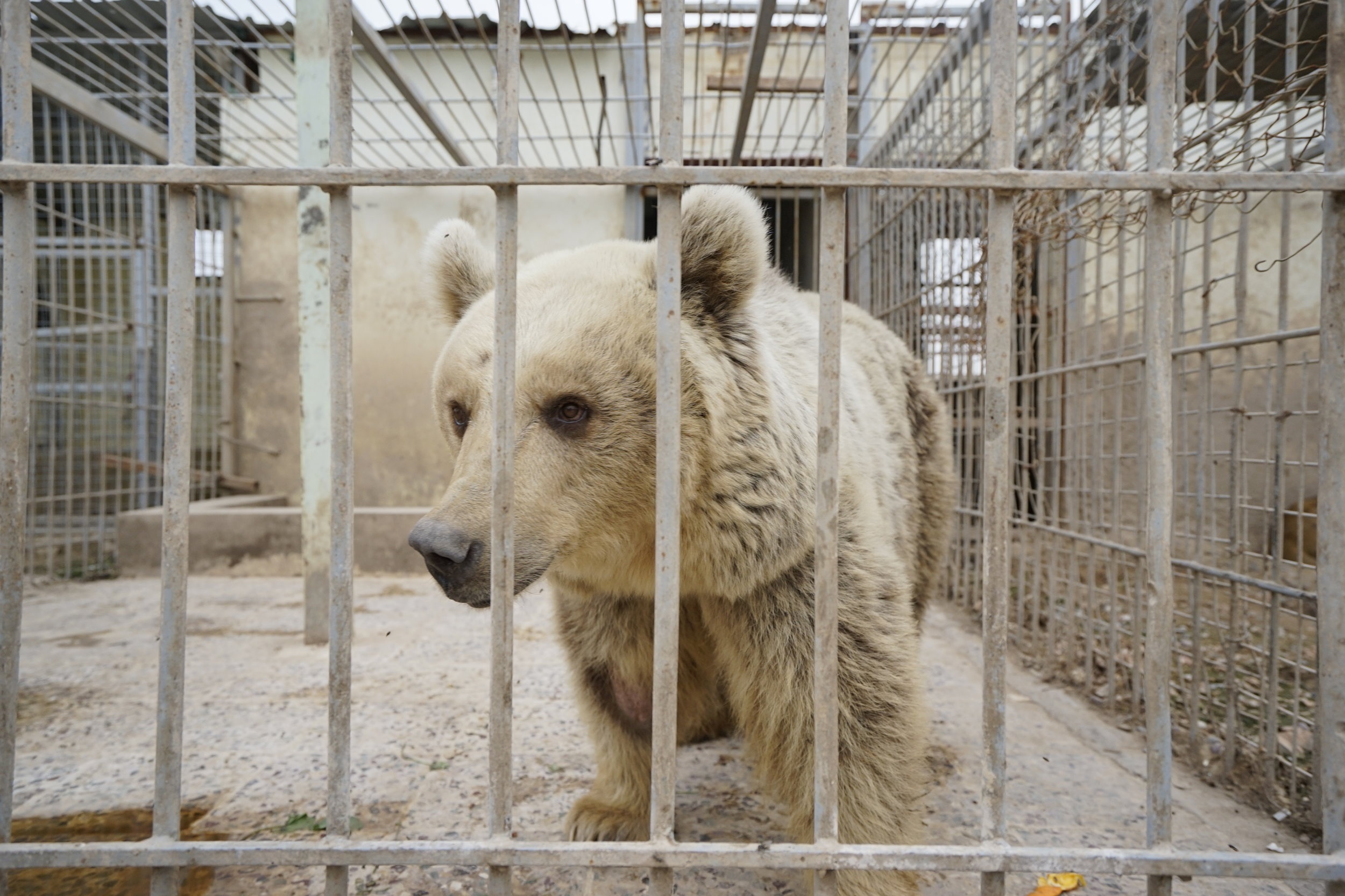
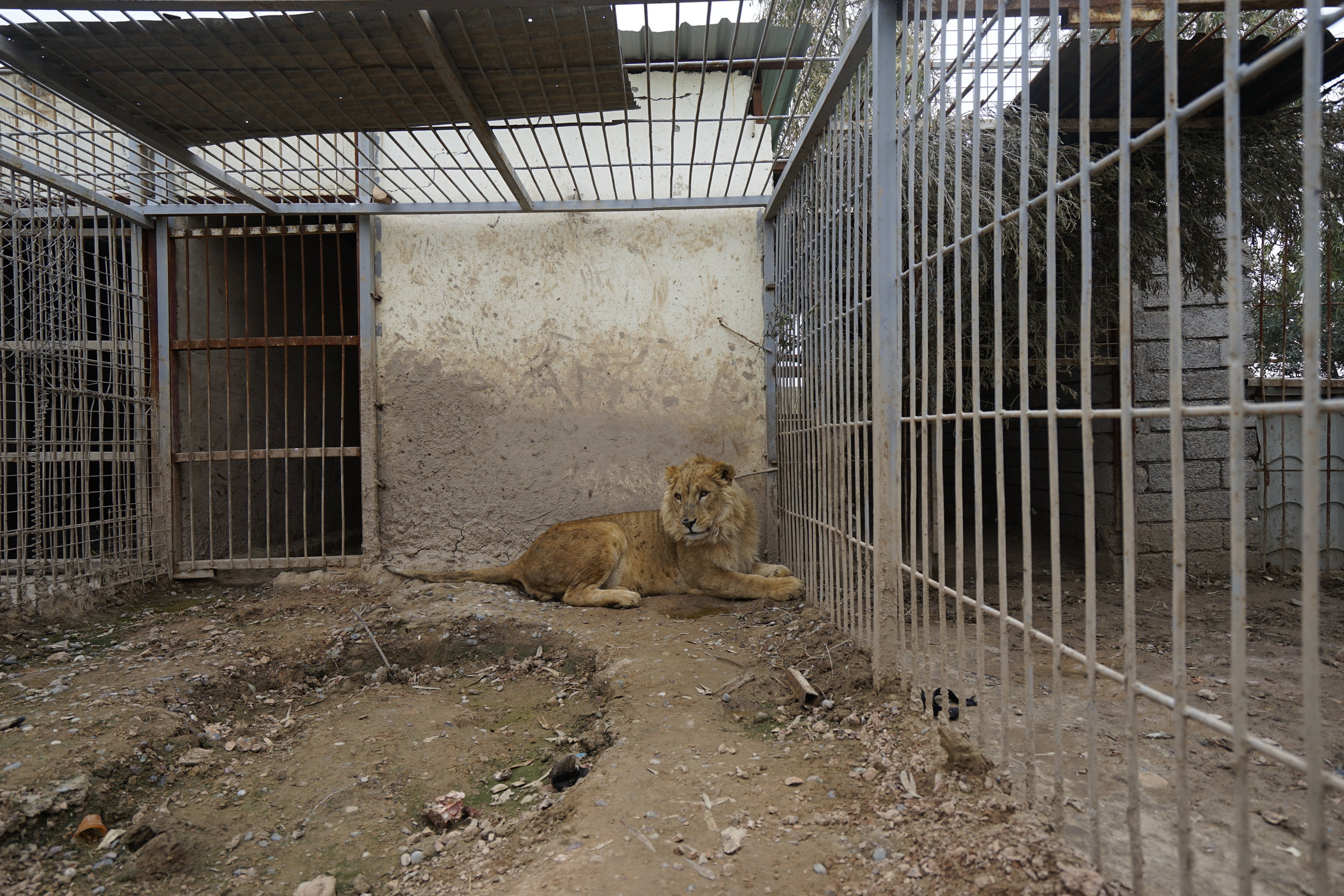
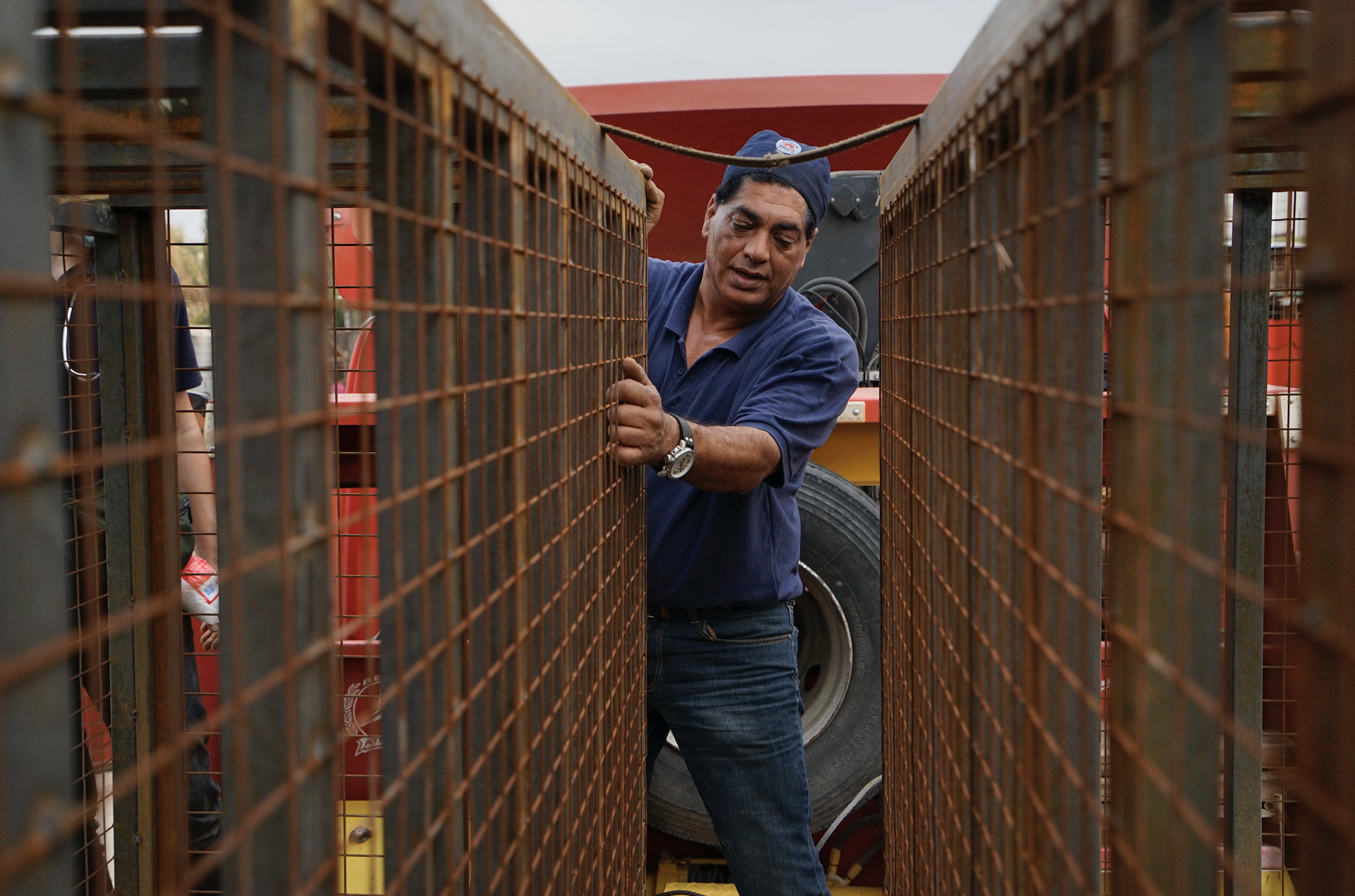
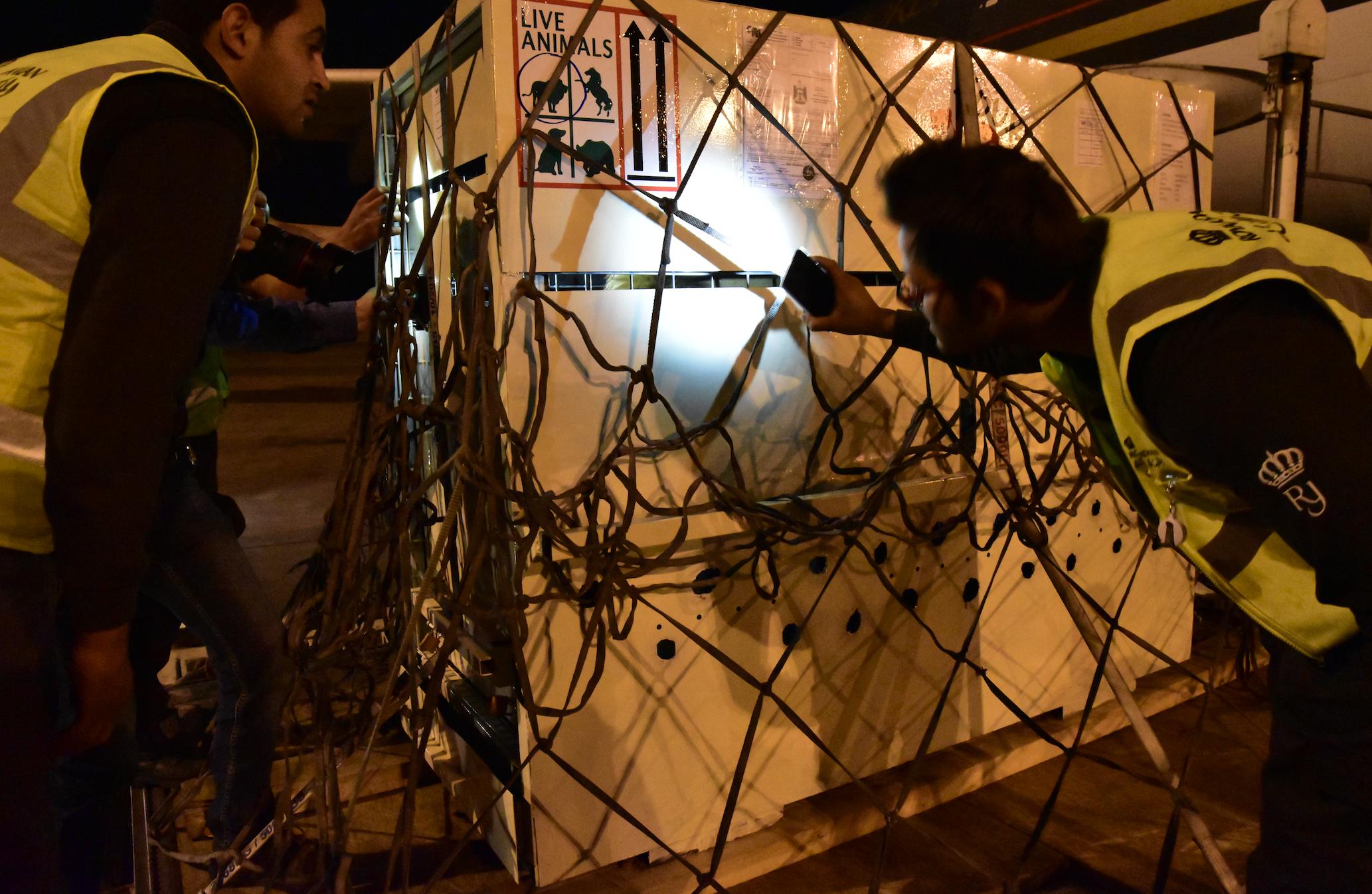
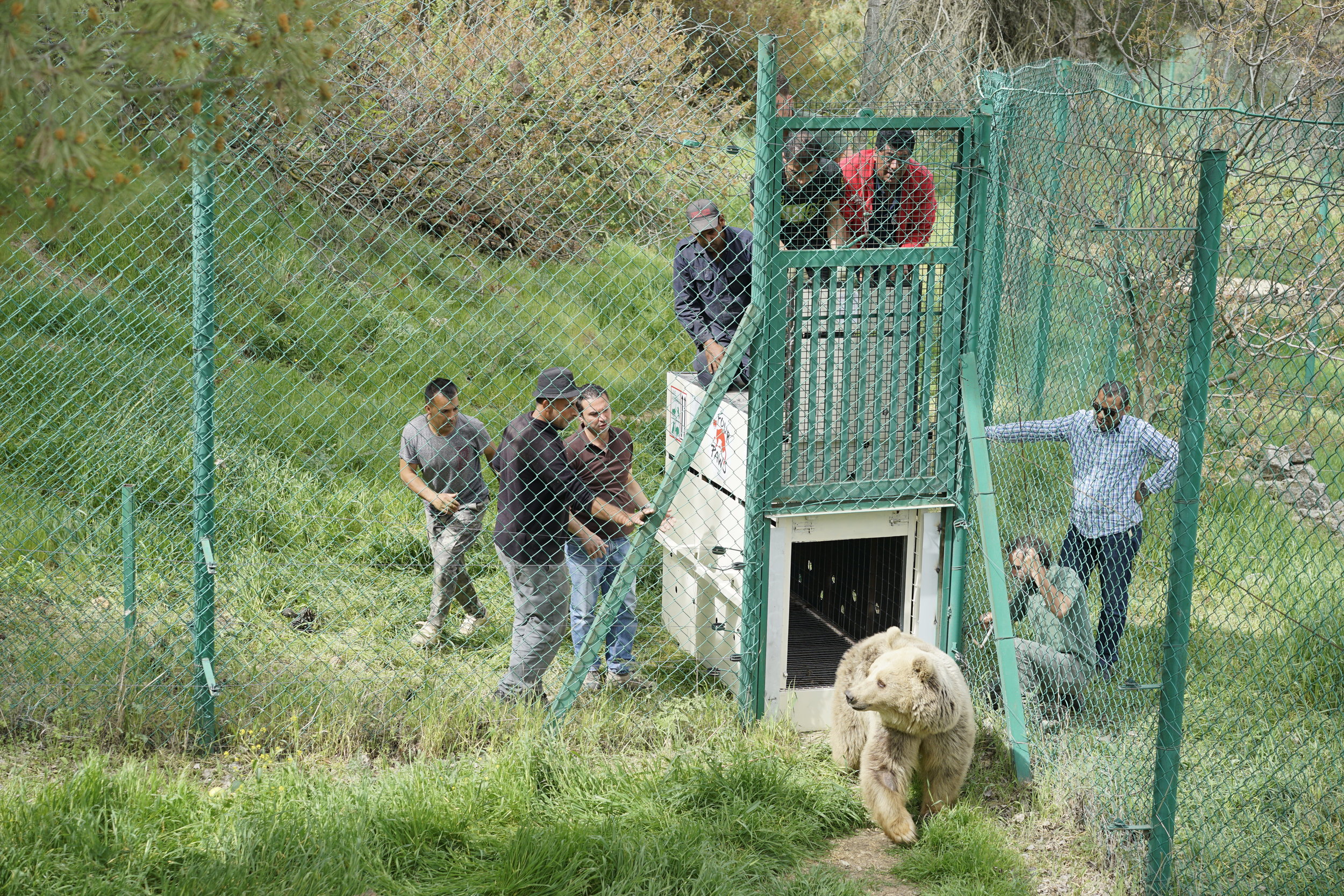
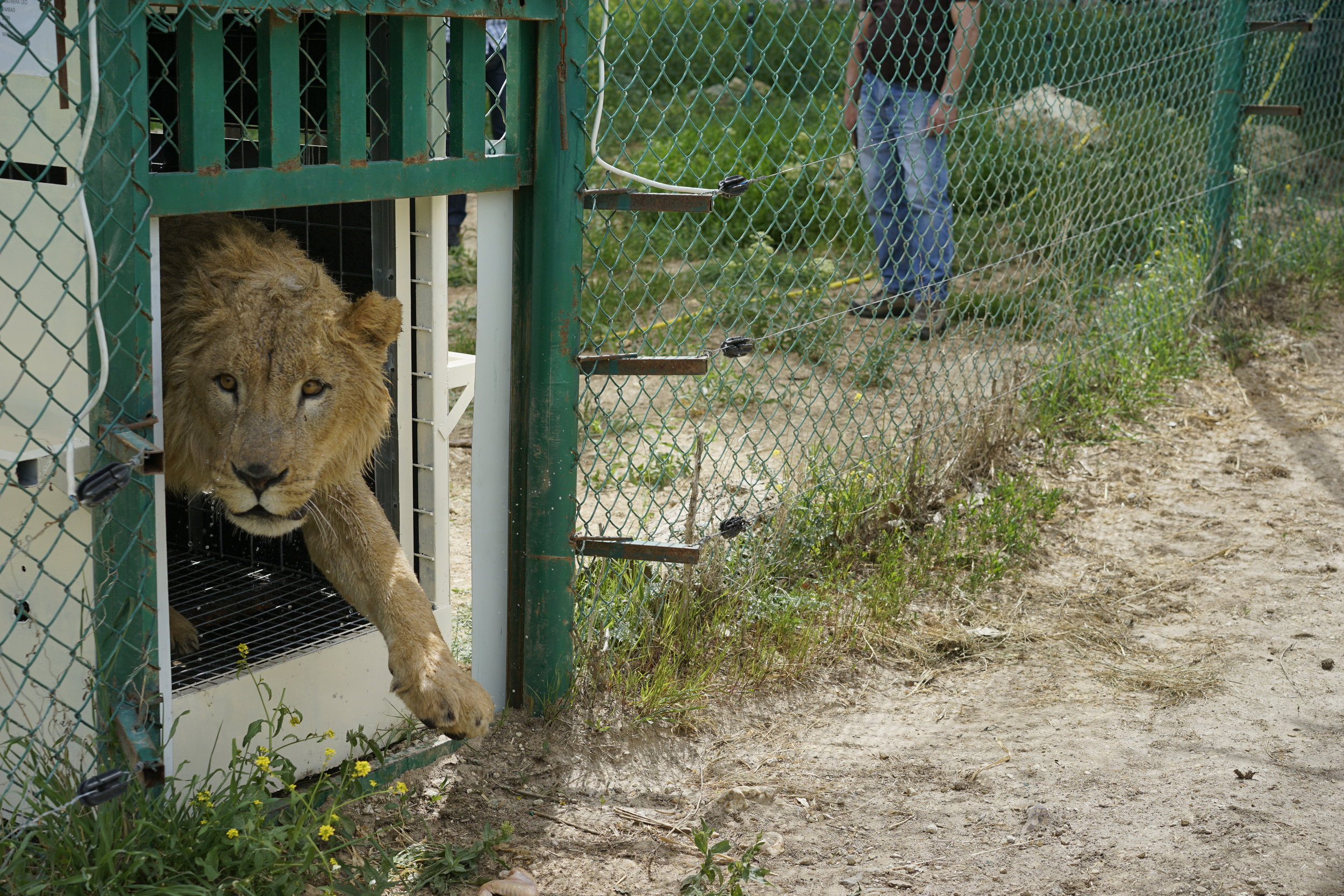
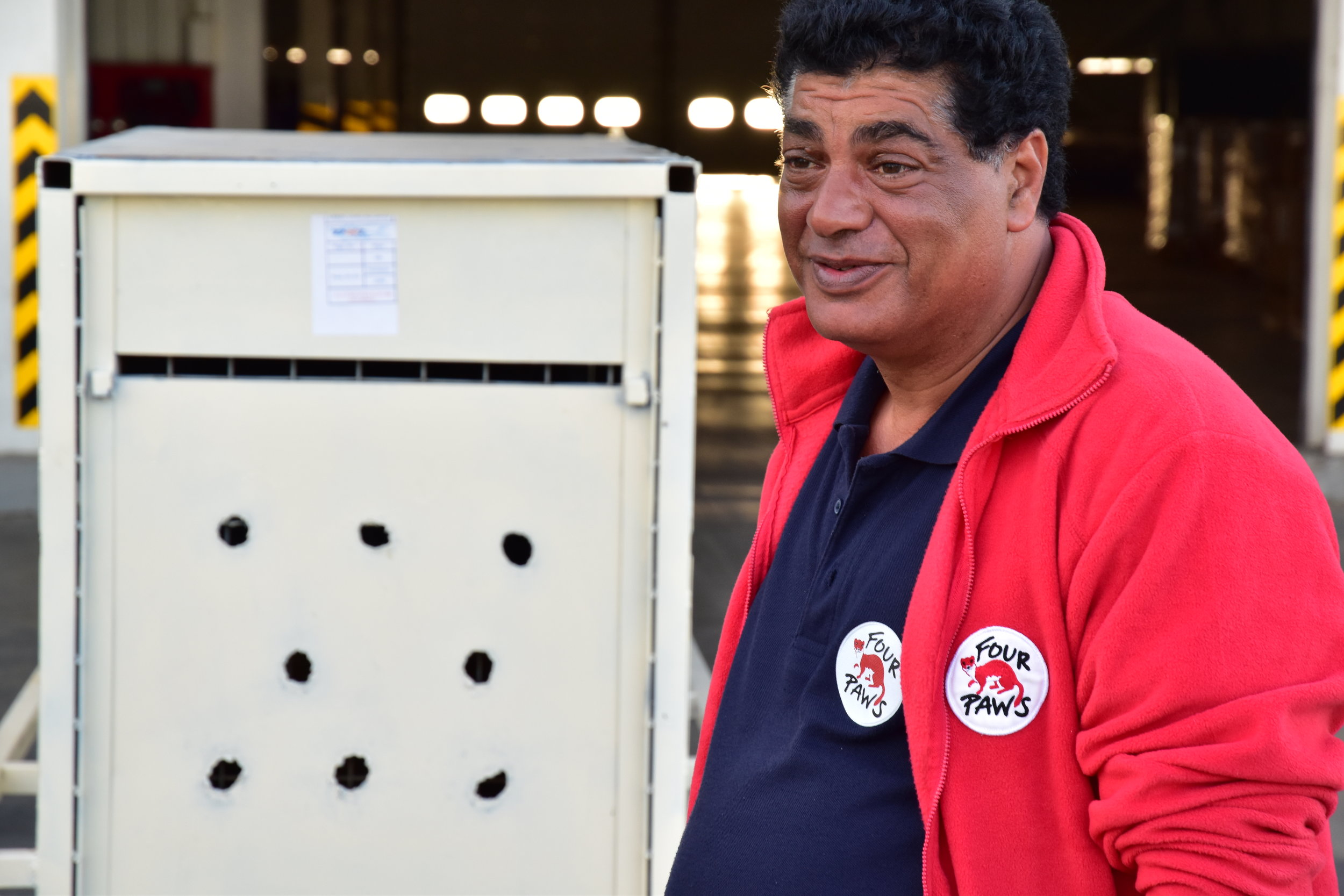
Based on the success of the mission in Mosul, there was a campaign for the charity to come to the aid of a Zoo in Aleppo, which similarly abandoned amid conflict. There they rescued another Lion, Saeed, who is believed to have been born in captivity during the war in Syria. As of February 2018, Simba and Saeed have been moved to their ‘forever home’ in South Africa.
As for Lula, she is still based in the Jordanian wildlife rescue centre “Al Ma'wa for Nature and Wildlife” where her and Simbia were originally evacuated too. She seems to be doing very well.
This is the second episode of our new series Undiscovered - a podcast that cuts through the noise in your newsfeed.
Listen to the whole episode, subscribe and catch up on episode one here.
Undiscovered - Where is Joseph Kony in 2019?
Undiscovered - Where is Joseph Kony in 2019?
In the first episode of Undiscovered, we find look beyond Kony 2012 - taking a look at the vast network of people and organisations that invested in capturing the war lord.
In 2012, a viral video from an American filmmaker made Joseph Kony a household name.
The campaign, ran by Jason Russell and his charity Invisible Children, had a clear goal: make Kony famous.
In only six days, Kony 2012 had become the most viral video of all time with 100 million views. The once obscure Ugandan warlord was plastered across Facebook and Twitter. The campaign was covered by media outlets far and wide - from CNN to Alex Jones.
Mission accomplished? Perhaps not.
Seven years, and $800 million dollars later, he still hasn’t been caught or held accountable for his crimes.
This week on Undiscovered, we find look beyond Kony 2012 - taking a look at the vast network of people and organisations, including the International Criminal Court and President Obama, that invested in capturing the war lord.
In this episode we speak to filmmaker Jason Russell, explorer Robert Young Pelton, conflict analyst Sasha Lezhnev and National Geographic producer JJ Kelley to find out the full story.
This is the first episode of our new series Undiscovered - a podcast that cuts through the noise in your newsfeed.
Listen to the whole episode and subscribe for more here: http://bit.ly/2HMNJNE






